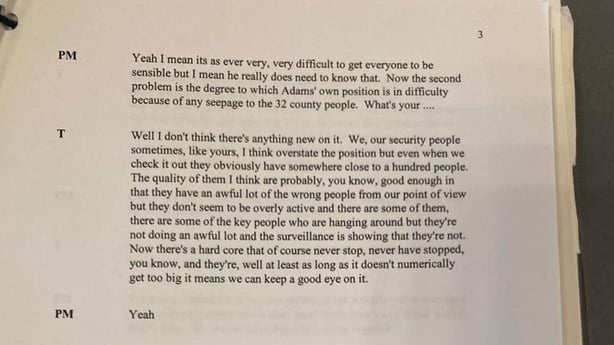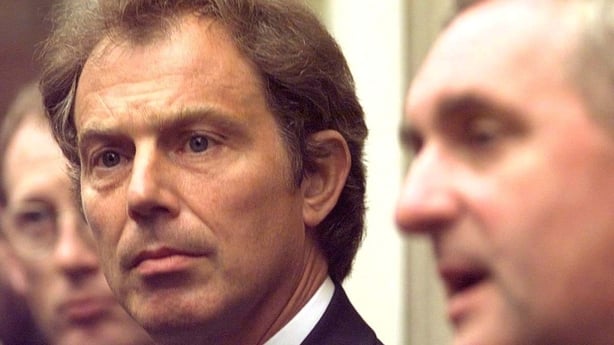By David McCullagh, Conor McMorrow and Justin McCarthy
Just two weeks before the Omagh bombing, taoiseach Bertie Ahern assured British prime minister Tony Blair that Irish security were "keeping a handle" on dissident republicans.
Ahern said the dissidents "don't seem to be overly active… they’re not doing an awful lot and the surveillance is showing that they’re not".
But in a warning that would prove all too accurate, he noted that while there were only around 100 people involved, "the quality of them I think [is]… good enough, in that they have an awful lot of the wrong people from our point of view".
He added: "There’s always the worry of course that somewhere along the way somebody slips but I think our guys feel fairly happy that they, you know, they’re keeping a handle on it…".

The two men were speaking on 31 July 31, before they both headed off on a much-needed summer break.
Blair said he was "desperate for my holiday", while Ahern spoke of going abroad if the weather did not improve. The conversation was optimistic and upbeat.
They knew they faced further problems shoring up David Trimble’s position and persuading Sinn Féin to make a move on decommissioning, but those were matters they planned to take up after the break.
Blair wanted stronger SF signal
On 15 August, 1998, the dissident splinter group calling itself the 'Real IRA' set off a car bomb in the centre of Omagh in Co Tyrone. A misleading telephone warning led police to inadvertently move people towards the bomb.
29 people died in the atrocity, making it the deadliest single incident of the Troubles.
The following day, Ahern and Blair met in Belfast. The Taoiseach said they were "looking 100% at McKevitt and Sands and the 32 County Sovereignty Movement and the ‘real’ IRA".
He added that the dissidents were "a dangerous and ruthless group, with some support from former members of the Provisional IRA technical/engineering unit…".
Blair wanted the garda commissioner and the chief constable to look at ways of "lifting those guys out of circulation, without internment".

Pointing out that they had no political organisation behind them, he did not think there would be any negative public reaction to "hoovering them up".
But there was a wider political imperative too: Blair said that "moderate Unionists needed to be convinced that Gerry Adams – contrary to what a lot of them believed – was not behind the dissidents in some way".
The prime minister said Adams’ statement condemning the Omagh bombing had been "helpful", but that Sinn Féin needed to deliver a stronger signal.
The taoiseach agreed on the need for rapid political progress – the Irish would "lean" on Sinn Féin, while the British could do the same with David Trimble. The two leaders agreed to put the pressure on to try to secure progress.
As Blair put it, the first reaction to Omagh was shock, the second would be anger – but it was vital to slip "hope" in as well.
Based on documents now available to view in the National Archives of Ireland.

